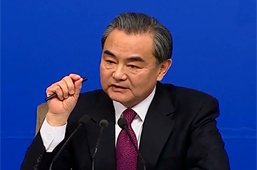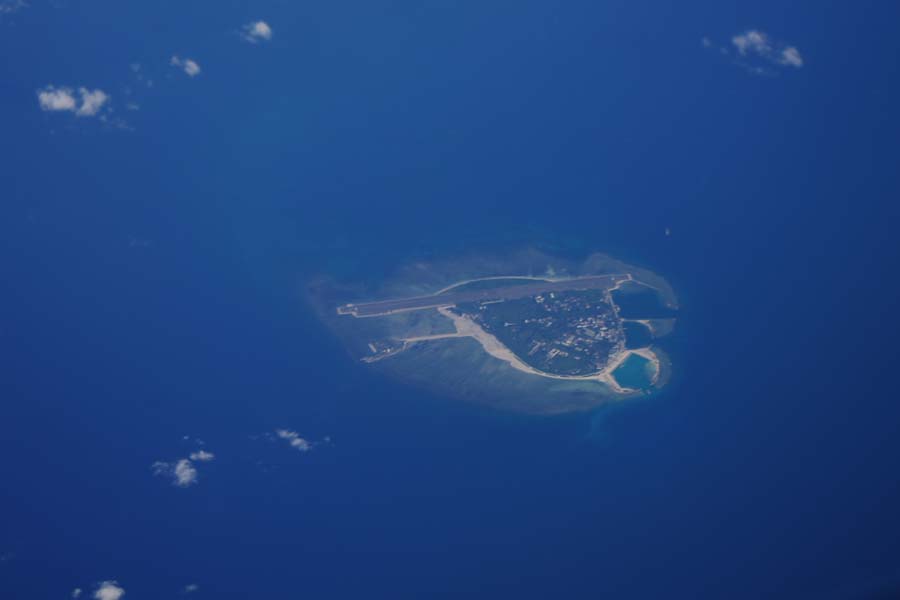
This bird eye view shows the coral reefs in China's Xisha Islands, South China Sea. [Photo/Xinhua]
China always exercises maximum restraint in safeguarding its sovereignty and rights and interests in the South China Sea, and treats neighboring countries as equals. China and the other claimant countries have worked hard to maintain a peaceful environment in the disputed area.
In contrast, the United States, one of the few major countries that has refused to join the United Nations Convention on the Law of the Sea and which has no territorial claim in the waters, continually tries to hype up the disputes as a means of sowing division between the other claimants and China, regularly sailing its warships in disputed waters under the pretext of safeguarding "freedom of navigation" in a bid to embolden its proxies to challenge China as part of its containment strategy.
Its provocative acts serve only its own hegemonic interests at the risk of regional peace and stability.
In its latest bid to reignite the disputes, the 150th report in a 52-year series purporting to examine the validity of maritime claims around the world, is a 47-page "research paper" on the South China Sea the State Department's Bureau of Oceans and International Environmental and Scientific Affairs issued on Wednesday.
Peremptorily declaring "historical rights" to be a meaningless term — which is to be expected given that the country is founded on land forcibly seized from the Indigenous peoples by colonialists — the report is nothing but a testimony to the continuous attempts by the US to stir up trouble in the waters for its own narrow ends.
Presented as an update of a 2014 "study" the US government released in 2014 to encourage the Benigno Aquino III administration of the Philippines to pursue international arbitration, the paper brazenly cites the judgment of a tribunal chaired by judges earmarked by Washington, which was unbinding, unlawful and politically-driven.
The paper ignores the objective facts of the South China Sea issue and the wider context of the disputes, and violates the US government's prior commitment to not take a position on the issue of sovereignty in the South China Sea.
In issuing the paper, the US has again demonstrated the hollowness of its leader's verbal commitment to China's top leader that the US would responsibly manage its "competition" with China.
In accordance with the Declaration on the Conduct of Parties in the South China Sea (DOC) reached between China and the members of the Association of Southeast Asian Nations in 2002, China is committed to resolving its territorial and jurisdictional disputes with the sovereign states directly concerned through negotiation and consultation, and working with the ASEAN countries to maintain peace and stability in the South China Sea.
And thanks to their joint efforts, the situation in the South China Sea is generally stable. China and the ASEAN countries are not only observing the DOC, but also stepping up negotiations on a more binding Code of Conduct in the South China Sea to jointly safeguard peace and stability in the South China Sea. As a country outside the region, the US is naturally not party to the negotiations.
The South China Sea concerns China's sovereignty and territorial integrity and core development interests and it will allow no party to compromise them.



 Overview
Overview Resources & Environment
Resources & Environment



 QQ 好友
QQ 好友 微信好友
微信好友 易信好友
易信好友 QQ空间
QQ空间 朋友圈
朋友圈 百度空间
百度空间